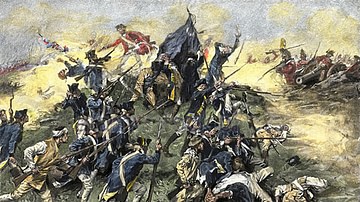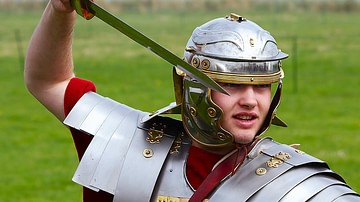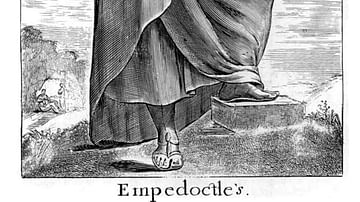Search
Search Results

Article
Siege of Savannah
The Siege of Savannah (16 September to 20 October 1779) was a significant engagement in the American Revolutionary War (1775-1783). Hoping to retake Savannah, Georgia, which had fallen to the British the previous year, a Franco-American force...

Video
The Rise & Fall of the Inca Empire - Gordon McEwan
View full lesson: https://ed.ted.com/lessons/the-rise-and-fall-of-the-inca-empire-gordon-mcewan It was the western hemisphere's largest empire ever, with a population of nearly 10 million subjects. Yet within 100 years of its rise in the...

Article
Battle of Kings Mountain
The Battle of Kings Mountain (7 October 1780) was a significant battle of the American Revolutionary War (1775-1783), fought in the backcountry of South Carolina between large parties of Patriot and Loyalist militias. The battle exemplified...

Definition
Gladius Hispaniensis - The Deadly Short Sword of the Romans
The gladius Hispaniensis or Spanish sword was first used by tribes in the Iberian peninsula and, following the Punic Wars, became the standard sword of Roman legionaries from the 2nd century BCE as its relatively short and double-edged blade...

Article
Heraclitus: Life Is Flux
Heraclitus of Ephesus (l. c. 500 BCE) famously claimed that “life is flux” and, although he seems to have thought this observation would be clear to all, people have continued to resist change from his time to the present day. Heraclitus...

Video
Norse America: The Story of a Founding Myth
In our interview with Gordon Campbell, we chat all about his new book Norse America: The Story of a Founding Myth. The book tells two stories. One story is that of the Norse proceeding in the 10th and 11th century from mainland Scandinavia...

Video
The Timeless Tale of the Hero's Journey: Full Film!
This film is an exploration of famed Mythologist Joseph Campbell's studies and their continuing impact on our culture. Through interviews with visionaries from a variety of fields interwoven with enactments of classic tales by a sweet and...

Definition
Leonardo da Vinci
Leonardo da Vinci (1452-1519) was an Italian Renaissance artist, architect, engineer, and scientist. He is renowned for his ability to observe and capture nature, scientific phenomena, and human emotions in all media. Leonardo’s innovative...

Definition
Moses
Moses (c. 1400 BCE) is considered one of the most important religious leaders in world history. He is claimed by the religions of Judaism, Christianity, Islam and Bahai as an important prophet of God and the founder of monotheistic belief...

Definition
Empedocles
Empedocles (l. c. 484-424 BCE) was a Greek philosopher and mystic whose work harmonized the philosophies of Parmenides (l. c. 485 BCE), Heraclitus (l. c. 500 BCE), and Pythagoras (l. c. 571 to c. 497 BCE) in presenting a unified vision of...